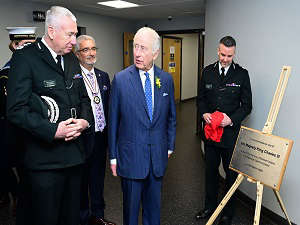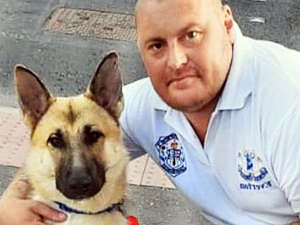
By Michael McHugh, PA
Republican support for non-violence was a key ask from unionists before political talks which produced the Good Friday Agreement, archives have shown.
The IRA called off its 17-month ceasefire in February 1996 with the London Docklands bombing which killed two and badly injured others.
US Senator George Mitchell later chaired all-party peace talks.
He lent his name to the Mitchell principles which all sides signed up to, like the disarming of paramilitaries.
NIO security minister Sir John Wheeler met former Ulster Unionist leader Lord David Trimble and then senior Ulster Unionist Ken Maginnis in March 1996 to discuss security matters.
An official note from the time said: “Mr Trimble said unionists would require a clear agreement of what exactly is going to happen at the beginning of talks on June 10.

“They believed that Her Majesty’s Government had to make it clear that Mitchell had to be crossed at the beginning of talks.
“Ken Maginnis intervened to say, not just the six Mitchell principles but the Mitchell report as a package.
“Mr Trimble agreed and said that the reason for his insistence was that he was sure that the Irish and others would try to sneak Sinn Fein into talks without a proper commitment to Mitchell.”
The Report of the International Body on Arms Decommissioning, chaired by Senator Mitchell, had recommended that participants in all party negotiations should affirm their total and absolute commitment:
– To democratic and exclusively peaceful means of resolving political issues.
– To the total disarmament of all paramilitary organisations.
– To agree that such disarmament must be verifiable to the satisfaction of an independent commission.
– To renounce for themselves, and to oppose any effort by others, to use force, or threaten to use force, to influence the course or the outcome of all party negotiations.
– To agree to abide by the terms of any agreement reached in all-party negotiations and to resort to democratic and exclusively peaceful methods in trying to alter any aspect of that outcome with which they may disagree.
– To urge that “punishment” killings and beatings stop and to take effective steps to prevent such actions.
British Government archived papers published by the Public Record Office of Northern Ireland (PRONI) added: “In response to a question from Mr Trimble about whether it was our perception that PIRA/Sinn Fein were ‘all over the place at the moment’ the minister said that we know there is a debate going on and we had to work on the assumption that the hard men will win.
“At best Sinn Fein may come back with a weak ceasefire to ensure the unionists or Her Majesty’s Government’s rejection of it as a ticket into all-party talks, this could give PIRA the excuse for full-scale violence.”
The files are being released under the 30/20 year rule allowing greater access to public information.


 King and Queen meet creatives during visit to heart of Belfast
King and Queen meet creatives during visit to heart of Belfast
 Man, 18, remanded in custody charged with attempted murder in Belfast
Man, 18, remanded in custody charged with attempted murder in Belfast
 Three men jailed for 20 years for murder of Ian Ogle
Three men jailed for 20 years for murder of Ian Ogle
 Northern Ireland’s First Minister expresses concern over benefits shake-up
Northern Ireland’s First Minister expresses concern over benefits shake-up